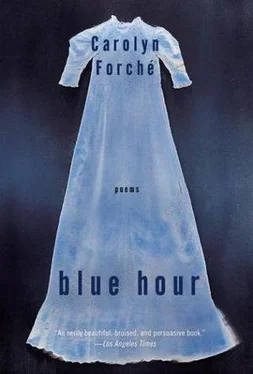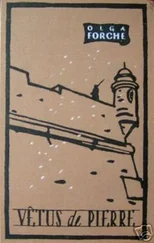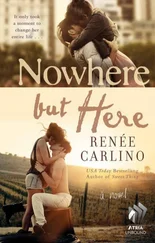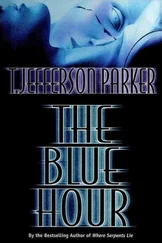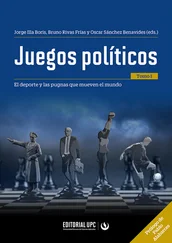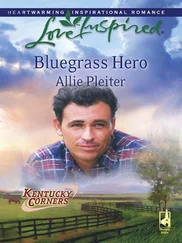We climb over rock moss and lichen, through fern stands and up the rain-slicked trail to the peak.
No longer could she live alone. As if dead, looking into a mirror with no face.
Star-spangle, woodsia, walking leaf, the ghosts of great blue heron.
What one of us lives through, each must, so that this, of which we are part, will know itself.
Here, where there was almost nothing, we waited in the birch-lit clouds, holding the uncertain hand of a lost spirit.

When my son was an infant we woke for his early feeding at l’heure bleue —cerulean, gentian, hyacinth, delft, jouvence. What were also the milk hours.
This one who had come toward me all my life now gazed at the skies above Montparnasse as if someone were there, gesturing to him from the slate light.
He looked at me and the asylum shimmered, assembled again into brick-light and wards of madness. Emptiness left my mother. The first love in field upon field.
The dolls were dolls, the curtain a curtain. The one in the grave said yes. Adieu, country. Adieu, Franco-Prussian War.
The curfew was as long as anyone could remember
Certainty’s tent was pulled from its little stakes
It was better not to speak any language
There was a man cloaked in doves, there was chandelier music
The city, translucent, shattered but did not disappear
Between the no-longer and the still-to-come
The child asked if the bones in the wall
Belonged to the lights in the tunnel
Yes, I said, and the stars nailed shut his heaven
protected from the silence she slid she too into this loss of self that reaches its height
and is reversed in a clump of charred roses
— Jacques Dupin
What happened? His face was visible then not. Around him snow fell, but over him grass remained, wet and young and shaped like a coffin.
I laid her in the snow, she who I was, and walked away.
And the house? Shuttered against fog, awake, windblown.
“The children had cocoa for breakfast, and milk with bread and jam at lunch. They took naps in the afternoon. They had a dog. At the end of the winter there was ‘no more snow.’”
And the cries were those of gulls following a seed plough.

The people of this world are moving into the next, and with them their hours and the ink of their ability to make thought.
Particles of light have taken from them antiphon, asylum, balefire, benediction.
Snow fell onto her coat and chewen gloves, at night like apple blossoms in tar, and my solace became that she would remain as she was.
When the house was alive, its walls recorded the rising and falling of the bed, as if a wind—
The hurrying-forth took with it casement, casque, chalice.
So why does it matter how, precisely? Behind a curtain in late day with a length of rope. In one of the upper rooms, where a cold rose even when the house was shuttered.

His mother on the porch, dressing like a man even then, and the house in the photograph behind her in flames, mother and house.
Beneath the ice, open-eyed but absent, she who I was, with ribbon scars faint across her. Every tip of wheat-stalk lit by sun.
They took with them communicant, cruet, and the ability to keep watch. Having lit the night sky, their heaven vanished.
He needed to feel as if he were going to die, many times to feel it, many hundreds of times.
It came along and passed beyond. Had I been. Were you not. Because I believed I was alone.
Until the derelict house offered its last apparition.

As a star plummets from darkness, a soul is exiled. Light, silk, the rope, black storms of dream.
That one day he was given a new mother, and it was she who starved them, she who sent them into the wood to cut the very switch—
So with the rope, as if he could replace the past. A child awakened by a whip. Until his narrow coffin and cup of sleep.
He was only a boy when the world darkened. But the switches were easy to find, so red in winter.
The house where one could dance without clothes imagined an invisible piano, stove mice, chimney swallows, a curtain, a cry.
What may have been the beginning of life after death.

In the open arms of a burnt wind he returned to me, barefoot by choice, bearing gingerbread, chocolate, quince jam, a bag of candy.
Look! Whole villages intact and shimmering. The very body itself begins to evanesce, it has not true boundary. Death changes it as a mirror changes a face.
Then he used the past to refer to the present. Flour-sacks, school-chalk, a coherent life.
Wings slap along the wall, and in the hardened owl dung, crickets glint. Dust settles on the house until entire sentences are written.
A window haunted by an open hand. Here, he said, his voice like gauze like grieving.

Over the writing table, an empty map: years to connect the little marks. In his closet among the linens his weapon of choice.
In answer to your question, no, he could not have done it. The rope was used for something else, worn from use, a cry a stiffening.
It was with this he untied himself again and again, in the bed and before the fire, blue-voiced and changed of face.
The house saw everything as does every house. Hollow walls, staircase, sorrowing ink. It was the last time.
They had been children in towns years apart, she who I was, and the man in the coroner’s arms.

Perhaps those born after the war are those whose lives the war took.
An abandoned house, after all, will soon give itself back, and its walls become as unreadable as symbols on silk.
With the departed, a sense of time, and sleep even sleep is taken, and the world appears as if it were—
Every spring I return to her, laying my thoughts to rest like a wreath on water.
These are the words no longer. Here are the photographs taken when we were alive.
In the blue silo of dawn, in earth-smoke and birch copse, where the river of hands meets the Elbe.
In the peace of your sleeping face, Mein Liebchen.
We have our veiled memory of running from police dogs through a blossoming orchard, and another
Of not escaping them. That was — ago — (a lifetime), but now you are invisible in my arms, a soul
Acquiring speech, the body its blind light, whispering Noli me frangere even as it is in death shattered.
We were one in the other. When the doves rose at once, and our refuge became wing-light—
The black fire of ink on paper took hold of their souls — incorporeal fire.
There was no protection this fire couldn’t touch nor darkness nor a moment.
It lasted as long as a dream it was no dream. Heteroglossia of nervous shortwave, cloud of blown walls.
Читать дальше
